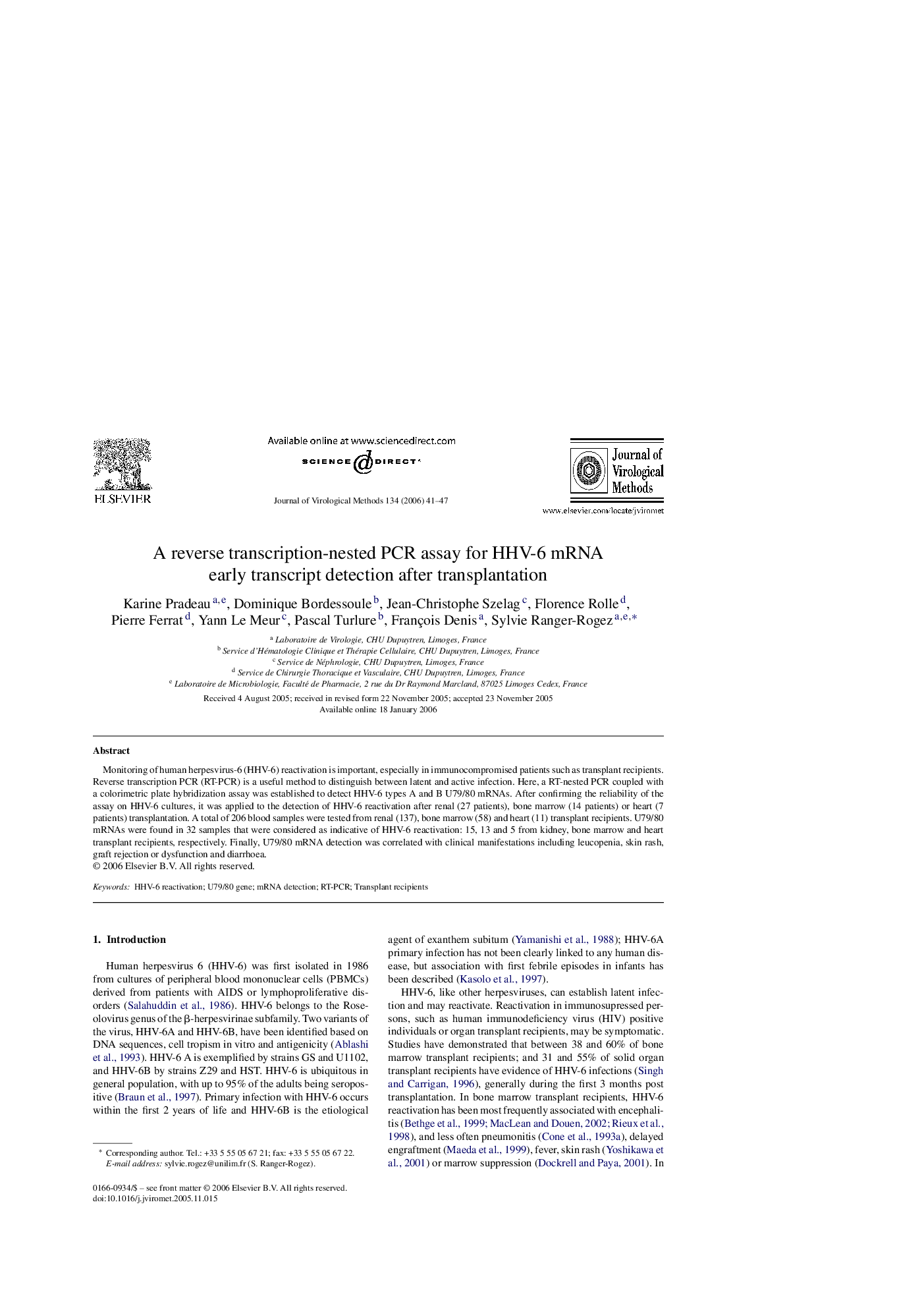| Article ID | Journal | Published Year | Pages | File Type |
|---|---|---|---|---|
| 3408347 | Journal of Virological Methods | 2006 | 7 Pages |
Monitoring of human herpesvirus-6 (HHV-6) reactivation is important, especially in immunocompromised patients such as transplant recipients. Reverse transcription PCR (RT-PCR) is a useful method to distinguish between latent and active infection. Here, a RT-nested PCR coupled with a colorimetric plate hybridization assay was established to detect HHV-6 types A and B U79/80 mRNAs. After confirming the reliability of the assay on HHV-6 cultures, it was applied to the detection of HHV-6 reactivation after renal (27 patients), bone marrow (14 patients) or heart (7 patients) transplantation. A total of 206 blood samples were tested from renal (137), bone marrow (58) and heart (11) transplant recipients. U79/80 mRNAs were found in 32 samples that were considered as indicative of HHV-6 reactivation: 15, 13 and 5 from kidney, bone marrow and heart transplant recipients, respectively. Finally, U79/80 mRNA detection was correlated with clinical manifestations including leucopenia, skin rash, graft rejection or dysfunction and diarrhoea.
